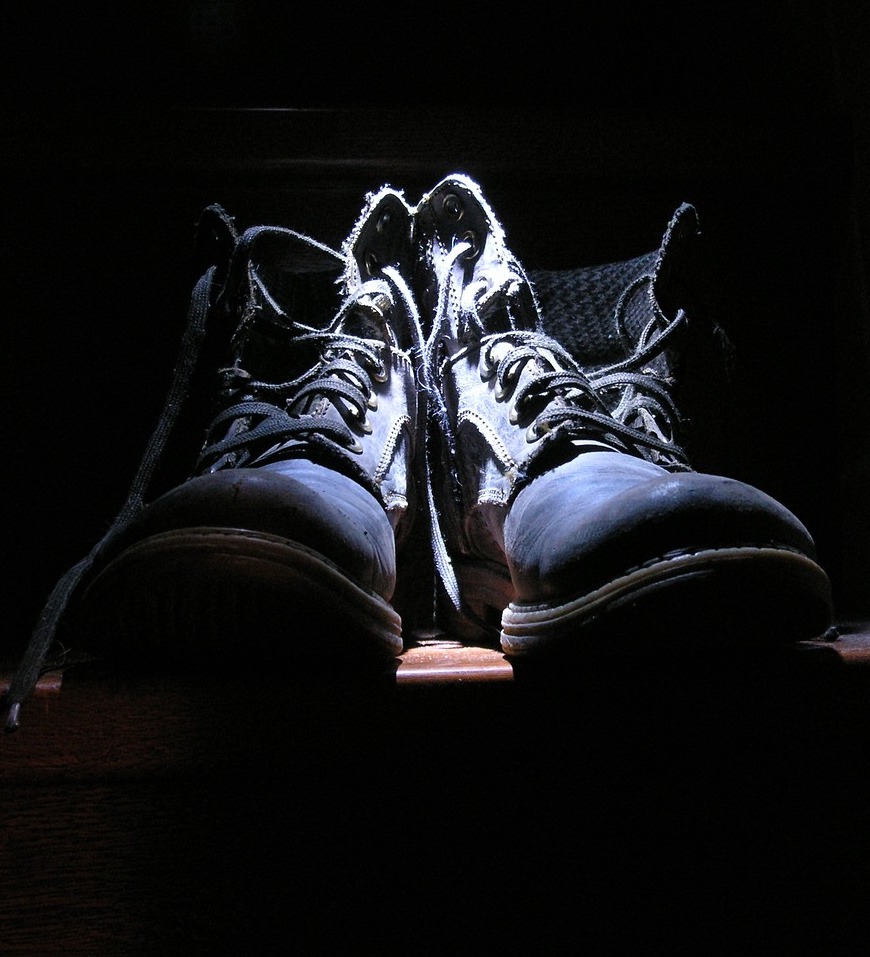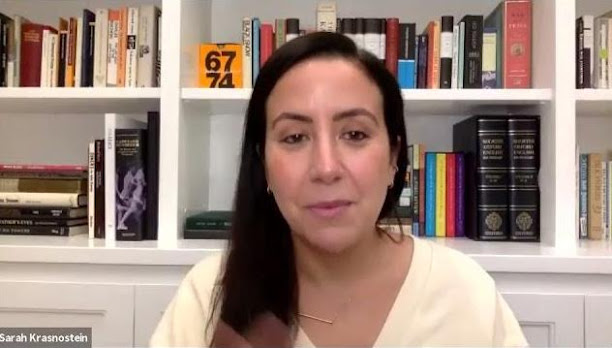Review by Bill Doughty––
Did the pilot encounter a UFO before losing contact with air traffic control? What do people, including his fiancé, believe happened to Frederick Valentich on Saturday, October 21, 1978, over Bass Strait, Australia? And what did Valentich report he saw and experienced just before his transmission cut off, the pilot never to be heard from alive again?
It’s one of the true stories explored by master writer Sarah Krasnostein in “The Believer: Encounters with the Beginning, the End, and Our Place in the Middle” (Tin House, 2022).
In “The Believer” we meet UFOlogists, an abuse survivor who hired a hitman, members of a Mennonite choir who perform in a New York subway, a “death doula” who helps individuals and families, ghost hunters who search for evidence in haunted places, a geologist who wants to believe the earth is 6,000 years old, and others following and sharing their beliefs. Throughout, Krasnostein presents characters in ways that make us care about them. The sometimes floating, sometimes strobe-like stories are often deeply painful but always thought-provoking, poetic and profound.
Her writing unfolds the biggest of issues: life, death, hope, reality, existentialism.
“From the absurdity of our deepest paranoias to the radical coherency of our highest art, we are compulsive converters of fact into meaning.”
 |
| UAP screen shot by a naval aviator (U.S. Navy) |
She visits the Creation Museum in California, discusses the cantina scene in Star Wars, shares the beauty of Wynton Marsalis’s “Canon for Three Trumpets and Strings,” and considers the science of oneness and shared atoms with religious fundamentalists, noting, “…they believe I am going to Hell, and I believe they may already be living in one…”
This is a book of fascinating encounters and deeply personal contemplation.
As if taking a book from a library shelf, Krasnostein quotes works by great minds such as Hanna Arendt and her “warning against mistaking knowledge for thought, and truth for meaning;” Haruki Murakami who contemplates “existential reality of nonexistence;” and Martin Rees’s observation that “absence of evidence is not evidence of absence” (now pertinent to discussion of Unidentified Aerial Phenomena, including recent revelations by U.S. military pilots and former naval aviators).
She spotlights Alvin Toffler, author of “Future Shock,” who in 1970 identified “the dizzying disorientation brought on by the premature arrival of the future.”Midway in the last century telephones were just for calling people. Computers were the size of large rooms. TVs had three channels –– all black-and-white, mostly white.
Krasnostein writes about some of the people in their early sixties and late fifties who experienced Toffler's future shock: “Over the span of their lives to date, LP records disappeared and then cassettes. Reel-to-reel, Beta, VHS. Carbon copies, typewriter ribbons. The black tongue of film inside a camera, every frame precious.”
Ahhh, an unexpected “found haiku” –– a five-seven-five-syllable stanza of words. Poignant. Exquisite. Unintentionally a poem:
…ribbons. The black tongue
of film inside a camera,
every frame precious
Other found haiku emerge as we read Krasnostein’s investigation of religion, alien abductions, and other beliefs.
She investigates UFO sightings, events, and conspiracies in Australia, including the Westall event of 1966. She visits with a sect of fundamentalist Christians in their homes and at their services, including in the dead of winter. She befriends a dying woman and her family, who allow her to share in the process of saying goodbye. And she follows the life of a convicted repentant murderer who helps homeless people stay alive.
Some found haiku in "The Believer":
Green-white flash moving
extremely quickly across
the sky. Metallic…
Over long winters
of short days when nothing thawed
or melted away

The railing is iced
with a thin line of fresh snow
as I climb the stairs
Through which a chill wind
blew: grief frustration closer
to strangulation
Inside, I add my
wet Nikes to the dozens
of similar pairs
On the sofa where
they lean towards each other like
a pair of old boots
Air is cold through the
clean pane as he looks up at
the blackness he knows
Of the clock face laid
bare as each hour came once, and
vanished forever
Salting of stars so
thick it reminded me we
are floating in space
How close the remote
past is: we live inside it
the light is the same
Self … rumination
carving neurological
tracks deep as canyons
Krasnostein examines the choices we make in our noble but vain attempt to find answers to every question. She sees how some believers accept certain inevitabilities. Reaching for more books, she cites other authors and thinkers, including Elizabeth Kübler Ross, Stephen J. Gould, George Orwell, Charles Darwin, James Baldwin, Ralph Waldo Emerson, and Jorge Luis Borges. Borges imagined Paradise “as a kind of library,” one that Krasnostein contemplates visiting.
“...I always imagined that library as an Eden where all the operating instructions are filed. Not only all the books ever written, but also each of our stories: the past meeting the future, everything indexed and logically related, a return to when the world was as seamless and whole as an apple. I suppose this reflected a belief in the world as a certain kind of text; a faith that, if I could only ask the right questions, I could finally understand.
“To believe in the world as this type of text is to believe that all lives –– regardless of whether they resolve happily –– make sense. To have faith in context and causation. To insist that people for the most part are intelligibly coherent in the sense of being predictably inconsistent and that they are capable, within reasonable bounds, of incredible insight and meaningful growth as they learn, painfully, to bend themselves around reality instead of expecting reality to miraculously bend itself around them.”

To have such an exquisite belief about people, she says, is just wrong. But adds, “what other choice do we have?”
Hannah Arendt is a touchstone in "Believer." Especially Arendt's "The Life of the Mind" "in which she explored the powers and limitations of our cognitive function. Arendt believed that every civilization is founded on the capacity to ask unanswerable questions. Krasnostein says, "In other words, our social survival –– even our physical survival –– is bound up with our spiritual survival and it might rely, as a matter of first principles, more on the aspirations underlying our questions and our ability to tolerate uncertainty than on our proficiency at defending solutions just for the sake of having them."
Could it be that commonality in our very atoms and shared place in space and time here "in the middle" is more profound than superficial differences –– despite indoctrination, amygdala influence, and ego issues?
I couldn’t help but notice that the subtitle of this wonderful book is, itself, a found haiku:
Encounters with the
beginning, the end, and our
place in the middle
(We have featured Navy Reads posts with other found haiku over the years, including from President Abraham Lincoln and Senator John S. McCain.)























